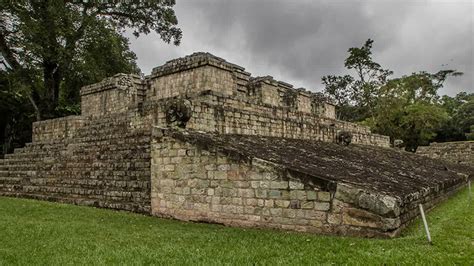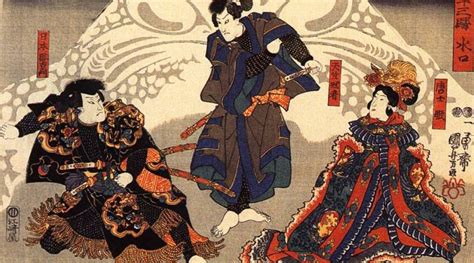Explore the formation, conflicts, breakup, and legacy of Yugoslavia. Learn about the ethnic cleansing and war crimes that shaped its history.
Formation of Yugoslavia
Contents
The formation of Yugoslavia took place in the aftermath of World War I, as various ethnic groups in the Balkans sought to create a united and independent state. The Kingdom of Serbs, Croats, and Slovenes was established in 1918, bringing together the South Slavic peoples under one government. This new country was an attempt to address the national aspirations of the different groups in the region, including Serbs, Croats, Slovenes, and others.
However, the formation of Yugoslavia was not without its challenges. The new state was made up of diverse ethnic and religious groups, each with their own cultural, linguistic, and historical differences. This diversity led to tensions and conflicts within the country, as different groups vied for political power and influence.
Despite these challenges, the formation of Yugoslavia represented a significant milestone in the region’s history. It brought together a number of distinct ethnic groups and laid the foundation for the development of a multiethnic and multicultural state in the Balkans.
As the formation of Yugoslavia unfolded, it set the stage for the complex political dynamics and social tensions that would come to define the country in the years to come. The legacy of the formation of Yugoslavia continues to shape the region’s identity and politics to this day.
Political tensions and conflicts
The history of Yugoslavia is marked by political tensions and conflicts between its various ethnic groups. The country was formed after World War I as the Kingdom of Serbs, Croats, and Slovenes, bringing together several different ethnic and religious communities. However, this union was fraught with challenges as the different groups sought to assert their own interests and maintain their cultural identities within the new state.
One of the key political tensions in Yugoslavia was the struggle for power between the Serbs, Croats, and Slovenes. The Serbs, who were the largest ethnic group in the country, sought to maintain their dominant position, which created resentment among the other groups. This political conflict was exacerbated by economic disparities and uneven development among the regions, leading to a deep sense of inequality and injustice.
Another source of political tension was the rise of nationalist sentiment among the different ethnic communities. The leaders of these groups often exploited historical grievances and fears of oppression to mobilize support, leading to a dangerous escalation of political conflict. This nationalist rhetoric further deepened the divisions between the various groups and inflamed ethnic rivalries.
The political tensions and conflicts within Yugoslavia ultimately led to the dissolution of the country in the 1990s, as the different groups sought to secure their independence and protect their own interests. The failure to address these deep-seated political tensions ultimately resulted in a series of devastating wars and the fragmentation of the once-united nation.
Breakup of Yugoslavia
The breakup of Yugoslavia was a complex and tumultuous period in the history of the Balkans. It began in the late 1980s and culminated in the early 1990s with the secession of several republics and the outbreak of devastating wars.
One of the primary factors contributing to the breakup was the rise of nationalism among the various ethnic groups in the region. As the communist regime began to falter, long-suppressed ethnic tensions resurfaced, leading to widespread hostility and violence.
The political leadership in each of the Yugoslav republics also played a significant role in the breakup. As they pursued their own nationalist agendas, the unity of the country eroded, eventually leading to its dissolution.
The breakup of Yugoslavia was also characterized by ethnic cleansing and war crimes committed by all sides, resulting in immense human suffering and loss of life.
The legacy of the breakup of Yugoslavia continues to shape the politics and society of the Balkans to this day, with unresolved ethnic tensions and the lasting impact of the wars serving as constant reminders of this tumultuous period in history.
Ethnic cleansing and war crimes
During the breakup of Yugoslavia, the region witnessed horrific ethnic cleansing and war crimes on an unprecedented scale. The violent actions were carried out by various ethnic groups, including the Serbs, Croats, and Bosniaks, as they sought to establish their own independent states and territories. The most notorious events during this period include the Srebrenica massacre, where more than 8,000 Bosniak men and boys were killed by Bosnian Serb forces, and the Siege of Sarajevo, which lasted for over three years and resulted in countless civilian casualties.
These acts of ethnic cleansing were characterized by the forced displacement and expulsion of individuals based on their ethnic identity. Families were torn apart, homes were destroyed, and communities were left in ruins. The goal was to create ethnically homogeneous areas, leading to widespread suffering and trauma for those targeted and affected by these brutal actions.
The war crimes committed during the breakup of Yugoslavia included mass killings, torture, rape, and other forms of inhumane treatment. These atrocities were not only perpetrated by military and paramilitary forces, but also by civilians who were manipulated by a climate of ethnic hatred and violence. The International Criminal Tribunal for the former Yugoslavia (ICTY) was established to prosecute individuals responsible for these crimes, bringing some measure of justice to the victims and their families.
The long-lasting impact of the ethnic cleansing and war crimes during the breakup of Yugoslavia continues to be felt today. It has left deep scars on the social fabric of the region, as well as on the collective memory of those who lived through this tumultuous period. The need for reconciliation, truth-telling, and accountability remains essential in addressing the legacy of these egregious human rights violations.
Legacy of Yugoslavia
The legacy of Yugoslavia is a complex and multifaceted one that continues to shape the Balkans region to this day. Following the breakup of the country in the early 1990s, the various successor states have had to contend with the lingering effects of decades of communist rule, ethnic tensions, and violent conflict.
One of the most significant legacies of Yugoslavia is the enduring ethnic divisions and nationalist sentiments that continue to impact the region. The ethnic cleansing and war crimes that occurred during the breakup of the country left deep scars on the collective psyche of the people, leading to ongoing political tensions and conflicts.
Furthermore, the economic ramifications of the breakup of Yugoslavia have been far-reaching. The transition from a centrally planned economy to a market-based system has been difficult for many of the successor states, leading to widespread unemployment and economic hardship for large segments of the population.
Despite these challenges, there are also positive legacies of Yugoslavia that continue to endure. The rich cultural heritage of the region, including its diverse art, music, and literature, remains a source of pride and identity for many people in the Balkans. Additionally, the legacy of socialist policies such as universal healthcare and education has left a lasting impact on the social fabric of the region.












